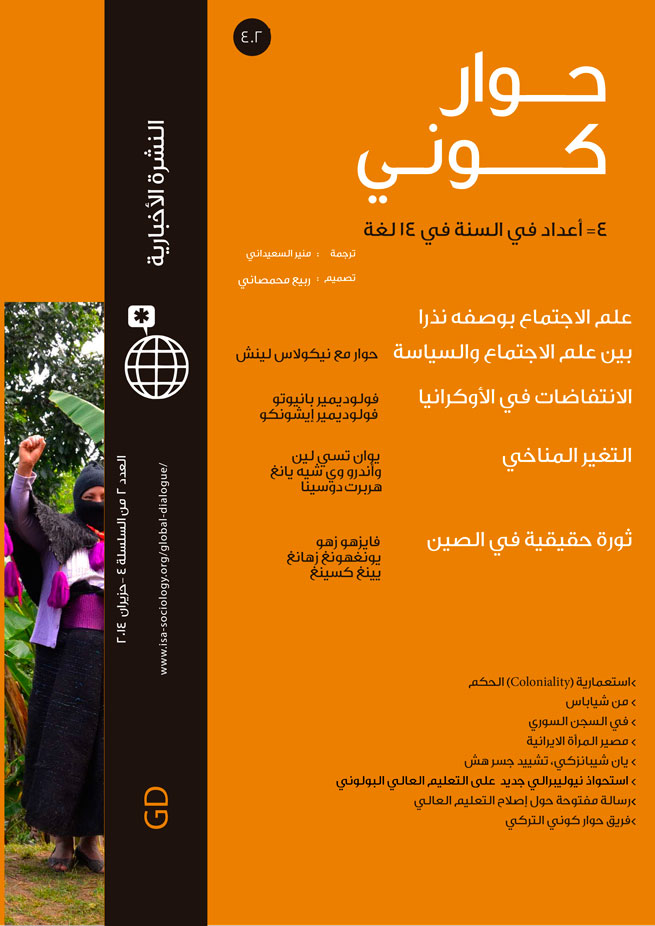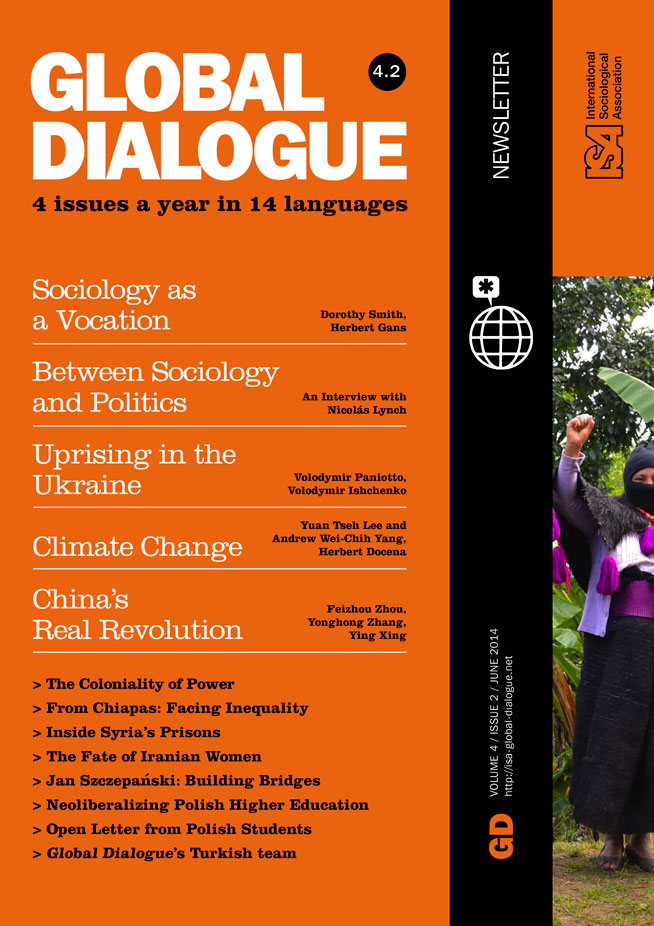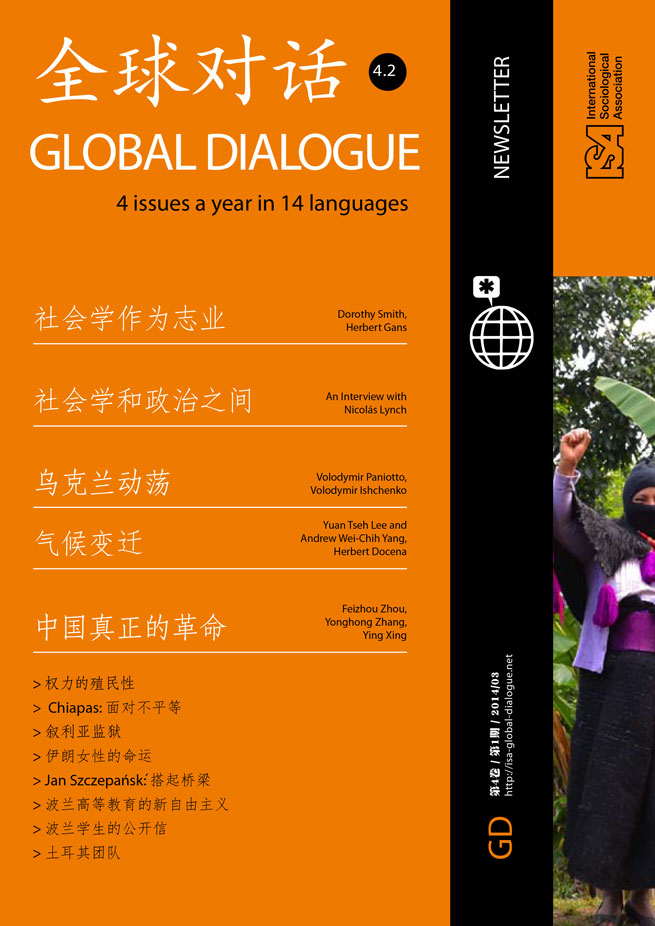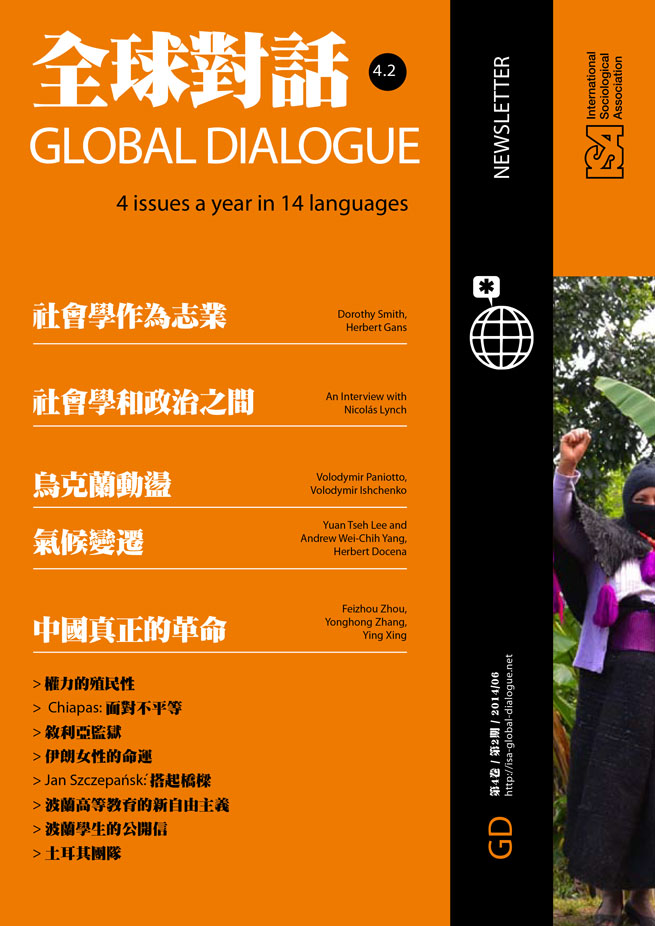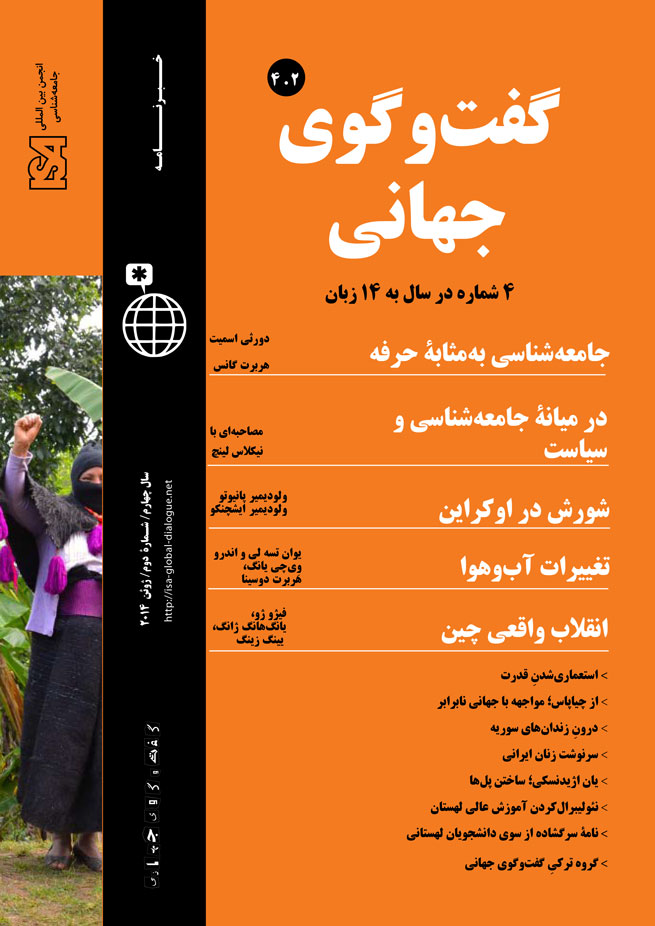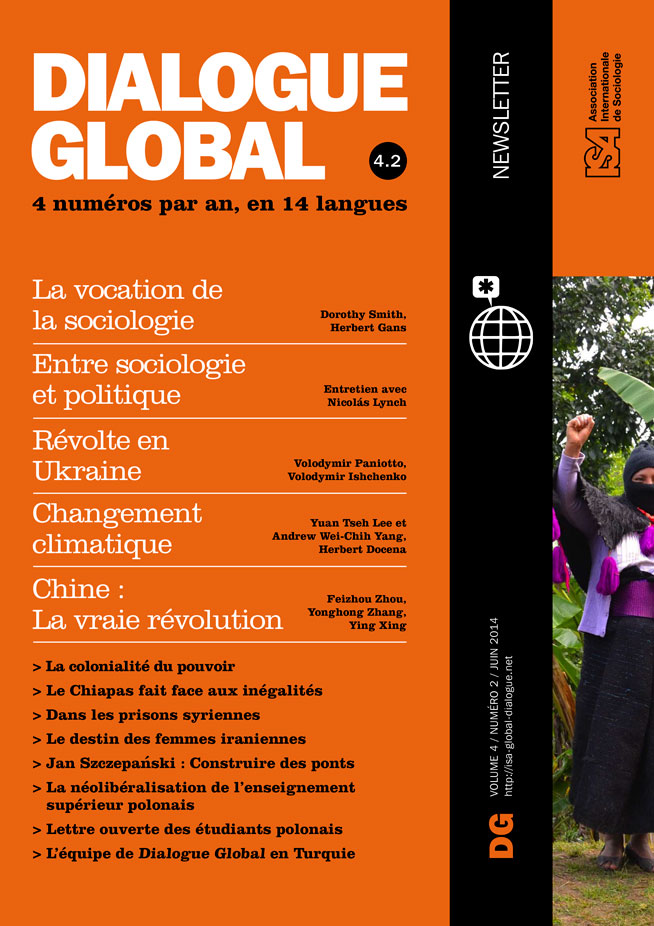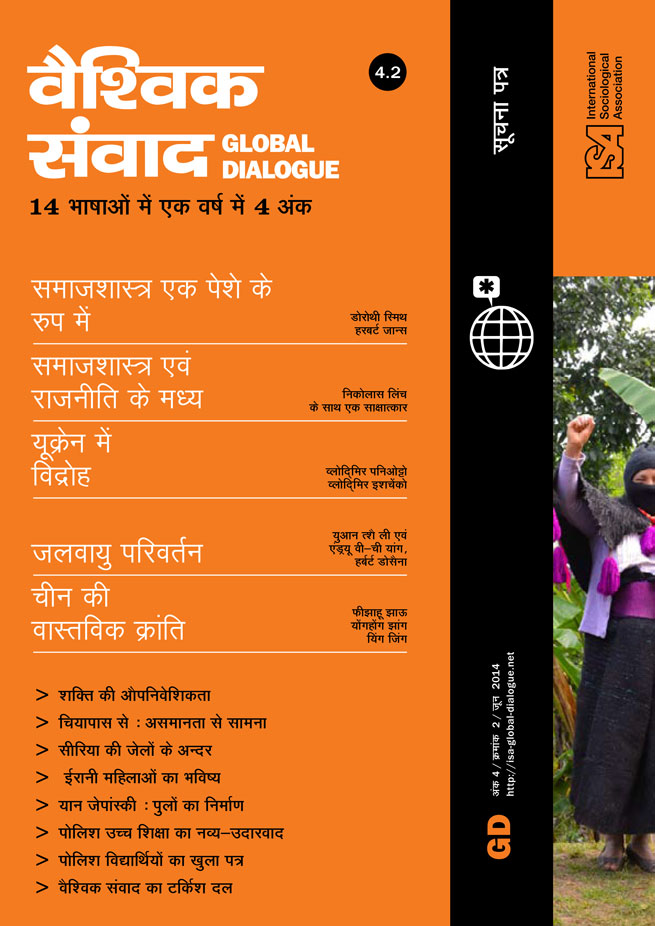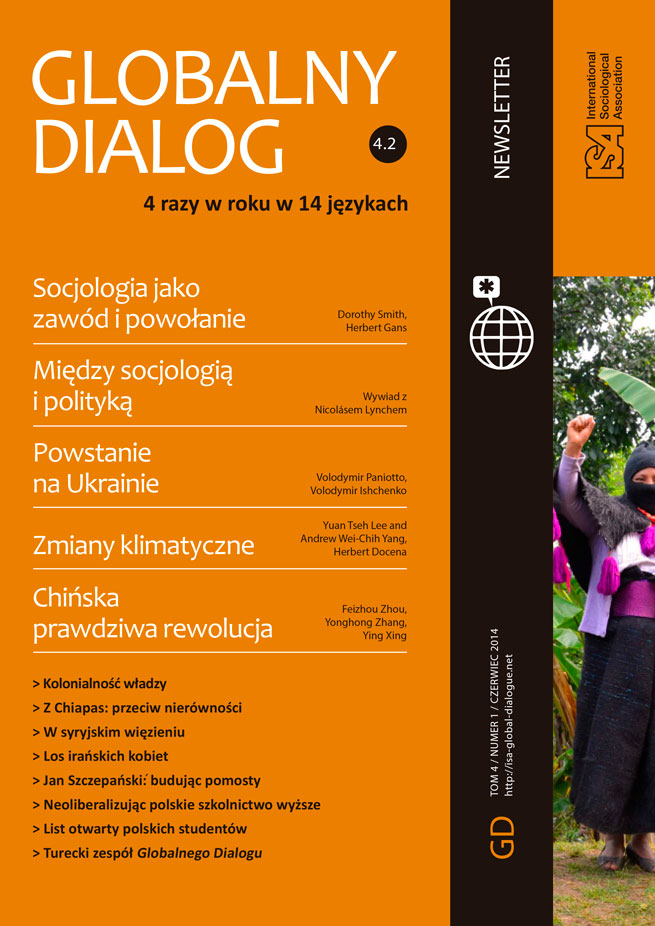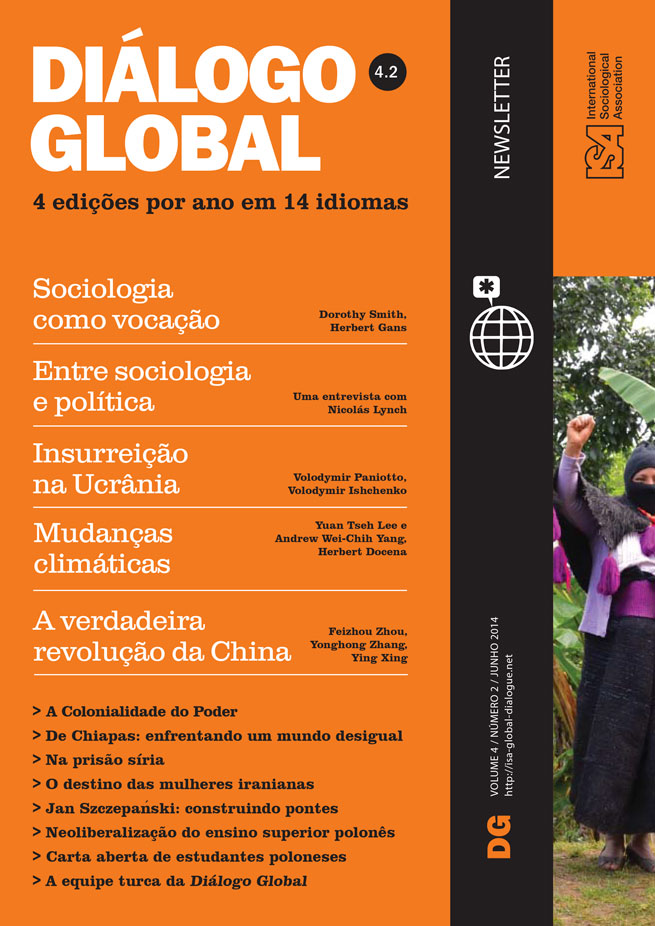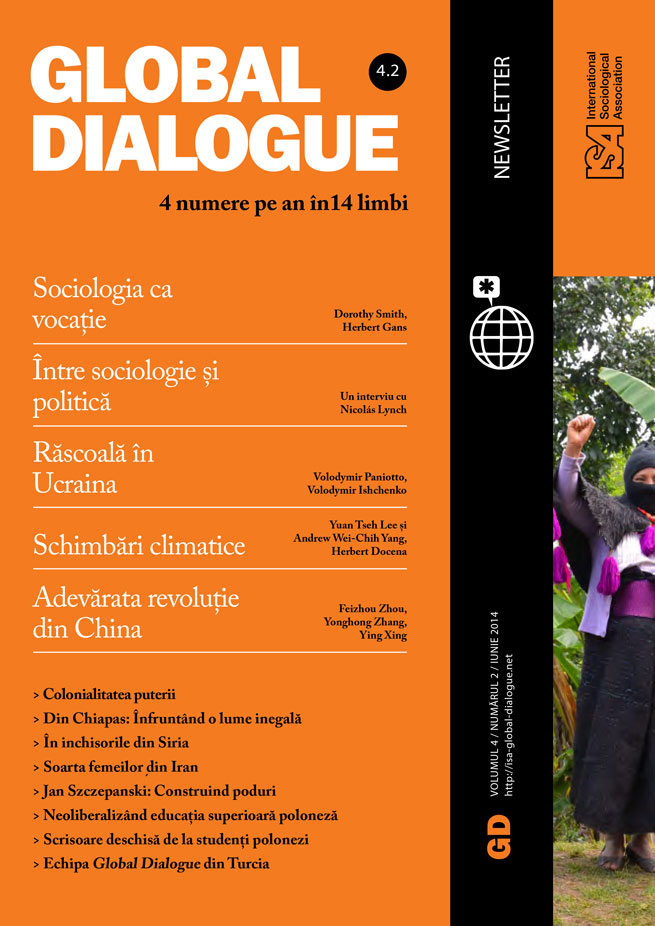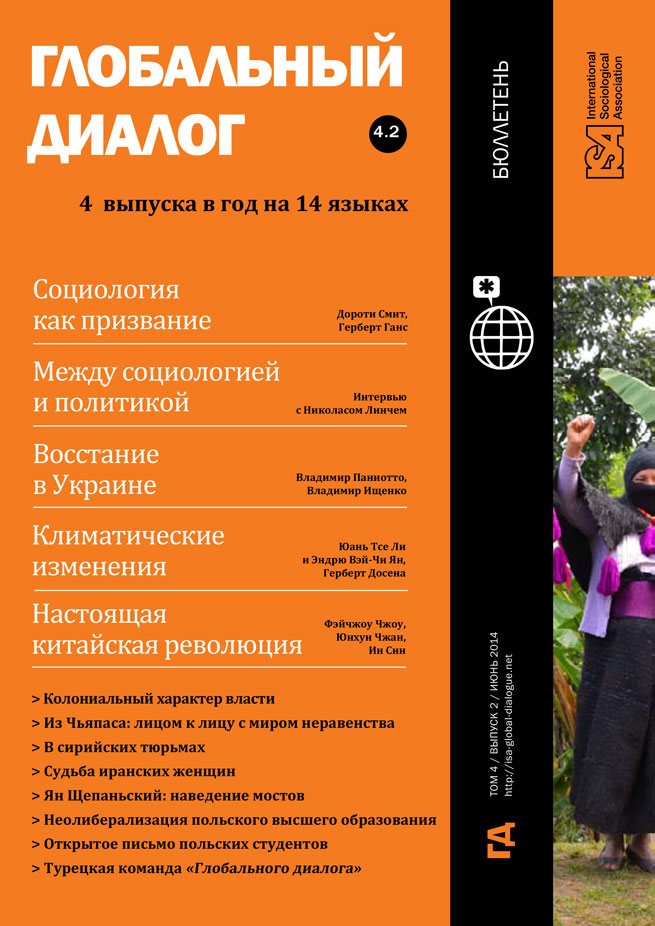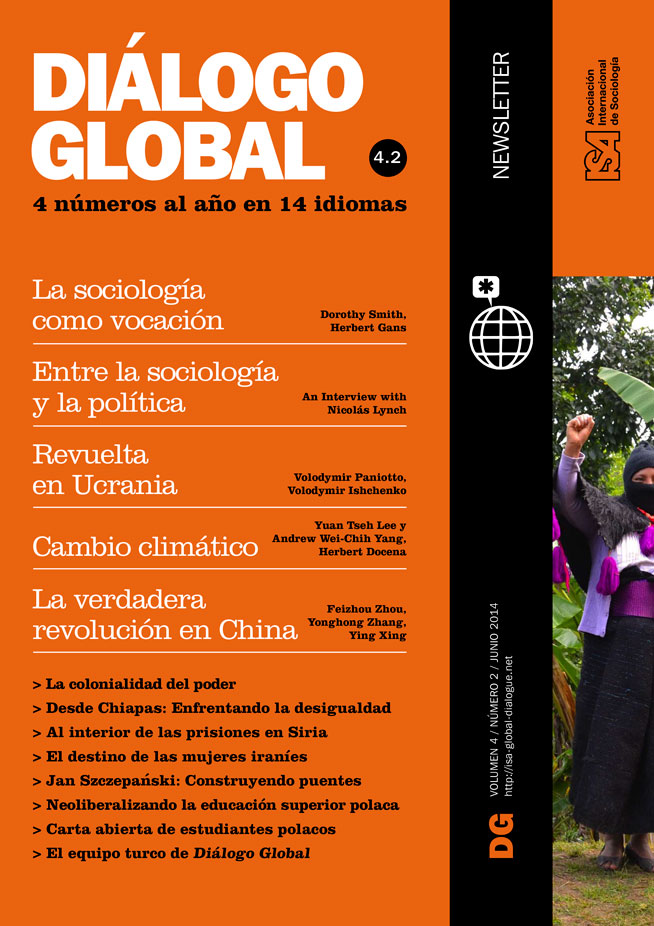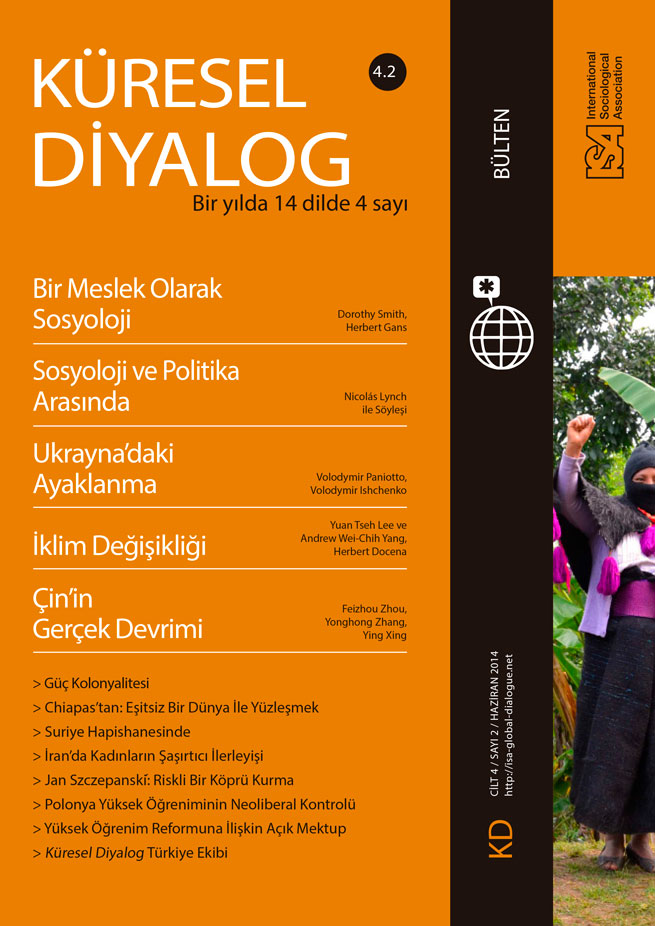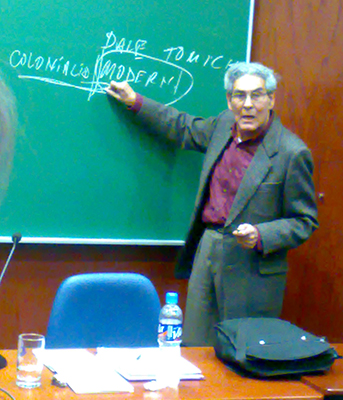Read more about From Latin America

From Chiapas: Facing an Unequal World
by Markus S. Schulz

Between Sociology and Politics: An Interview with Nicolás Lynch
by Nicolás Lynch
May 17, 2014
There is ample evidence that we are going through a period in which the entire model of modern-colonial power, which has dominated the planet for the last 500 years, is facing a structural crisis. This is a crisis in the very foundations of the entire power structure: difficulties have arisen across all its components and levels – in gender relations, labor relations, political relations, intersubjective relations, and relations with nature – which cannot be resolved within the current historical system, calling for the creation of new forms of social coexistence.
Particularly important is the crisis of intersubjective structures – and especially ways of knowing as it applies to the social sciences. Since the 1970s, we have seen a complex of transformations in the social sciences that speak to the ways they are – necessarily – being reorganized. The Gulbenkian Commission Report is perhaps the most revealing examination of the profound changes that have been taking place in social thought in the second half of the twentieth century (Wallerstein, 1997). This report shows how Eurocentric structures of knowledge have been eroding, both in the core countries and in the periphery, and how schools of thought have emerged aiming to develop alternative forms of understanding social and historical reality.
I consider Eurocentrism to be the structure of knowledge that has ensured and sustained the colonial-modern model of power. It corresponds to a specific way of perceiving and organizing the natural and social world. It is based on three foundational beliefs.
First, is the belief in simplification. According to Descartes, to understand complex processes it is necessary to divide them into as many parts as possible in order to study each in isolation, so that what is “clear” is what is simplified. This perspective then produces an increasing compartmentalization and specialization of knowledge, manifested in the emergence of disciplines as intellectual categories, each with its own object and method of study. Disciplines also develop institutional categories that lay the basis of departments and form the organizational structure of modern universities.
The second foundational concept of Eurocentric knowledge is the belief in the stability of social and natural systems. This conception views reality as an ordered world that operates according to simple and knowable laws. It is presumed that this knowledge allows us to predict what will happen and, therefore, we can control not only the natural world but also the social world. This belief leads to determinism and the idea of reversibility, in other words that events are repeatable, and thus, the elimination of history as a creative process.
The third foundational belief is objectivity, that is, the principle that you can know reality as it is, suspending the subject. The consequence of this belief is an acceptance of the idea that knowledge is value-free.
In the colonial-modern model of power, Eurocentrism imposes itself as the only legitimate form of knowing, thereby marginalizing, subalternizing, or destroying the structures of knowledge of colonized peoples. The knowledge that had developed among these peoples for millennia and that had served as the basis of their specific forms of social existence is violently repressed and relegated to the margins, so that their own bearers seek to rid themselves of such forms of knowledge, as they too start to see them as inferior.
It is at the periphery of this colonial-modern model of power that there have emerged the clearest currents of thought that radically question Eurocentric structures of knowledge. Major contributions to this perspective include postcolonial studies, subaltern studies, and the production of African intellectuals. Within these currents, the analytical approach associated with the “coloniality-decolonization of power” offers one of the most promising alternatives to Eurocentric knowledge, and a means to understand the tendencies of the contemporary world as well as to think through options for the future. The seminar The Questions of Dis/Coloniality and Global Crisis, organized by Aníbal Quijano in Lima in August 2010, was surely the culmination of earlier debates and the point of departure for the analytical perspective of the coloniality of power.
The analysis of the coloniality-decolonization of power offers a perspective on knowledge – a way of perceiving reality, of generating questions and organizing the responses in relation to the social life of human beings – that enables us to broach important questions that Eurocentric thinking had closed off. It has emerged as a challenge to Eurocentric forms of producing knowledge, because it questions the foundations of the hegemonic structures of knowledge of the modern-colonial capitalist system. The purpose of this article is to examine the epistemological and theoretical assumptions and possibilities inherent in this alternative perspective on knowledge. I seek to explore some of its most important lines of inquiry, which contribute to the reorganization of social theory.
Following the innovative theories of Aníbal Quijano, I suggest that with the European conquest in 1492 of what would later be called America, there emerged a sui generis model of power, that had coloniality and modernity as its key characteristics. On the one hand, it was defined through coloniality, inasmuch as the power relations established during the conquest were intertwined with the idea of “race” as the core social classification of human beings. In other words, the conquerors imagined themselves as superior humans and self-identified as “white,” while they saw the conquered as inferior humans and identified them as “Indians” and “blacks.” In naturalizing the social relationship, the idea of “race” legitimized the domination and exploitation of indigenous people and African slaves and became an essential feature sustaining the model of power, even after the colonies won independence from Spain and Portugal. It guaranteed that both dominators and dominated accepted domination as natural. Meanwhile, modernity served as the other face of coloniality, inasmuch as it increasingly rationalized social life, with scientific and technological progress as its main indicator.[1]
Epistemological decolonization entails questioning the assumptions on which Eurocentric knowledge structures were built and proposing alternative interpretations that may be more fruitful for developing a systematic understanding of the social world and for proposing realistic options for a more egalitarian and democratic future. I propose five modes of questioning the presumptions of the European way of producing knowledge about social life – and five alternative interpretations that emerge from the analysis of the coloniality-decolonization of power.
1. Questioning the state as an analytical framework for understanding social life. State structures cannot be considered the borders within which social relations are defined. Hence, the need to take as our unit of analysis the global, modern-colonial model of power that emerged in the sixteenth century with the European conquest of what would become America.
2. Questioning the notion of colonial power in order to understand the relations of domination and exploitation established between colonizers and colonized. Thus, we are not only examining economic, juridical, and political exploitation and domination, but also how, within the modern-colonial system, these relations of power are also intertwined with a symbolic and legitimizing set of ideas captured in the notion of “race.” Thus, the racialization of power relations constitutes the global, capitalist, Eurocentric model of power.
3. Questioning the epistemology of simplification, in particular, the belief that understanding complex processes involves separating them into as many parts as possible in order to study these parts independently. The analysis of the coloniality of power insists on the importance of understanding the global, modern-colonial model of power as a historical totality. That is, it understands power as a complex system of heterogeneous elements, closely interwoven with each other, that emerged in the sixteenth century and extended to global control in the nineteenth century – a system that is currently entering a period of bifurcation, or structural crisis. From this point of view, the arbitrary separation between the political, economic, and sociocultural spheres is not useful; rather, we should see them as moments in a total historical process. Furthermore, according to this alternative hypothesis, the specialization of social knowledge into disciplines, which stemmed from the historical construction of the social sciences in Europe in the nineteenth century, does not have any epistemological justification. Rather, the only useful specialization would be around specific problems or fields of study.
4. Questioning the separation between the subject and object of knowledge. Here the challenge is both to objectivism (which brackets the subject) and to subjectivism (which brackets the object) since both perspectives preclude a full understanding of reality – and particularly social reality. In other words, there is a need to recognize that a world exists outside of the subject – but that the subject intervenes in the production of knowledge so that measuring, for example, modifies that which is measured. Thus, knowledge appears as an intersubjective product, understood in terms of the intersubjective structures and epistemological rules – social rules – that establish the truth.
5. Questioning the separation between scientific and humanistic knowledge. If scientific knowledge has been exclusively concerned with the search of truth through empirical procedures, and humanistic knowledge has discussed ethical and aesthetic values, the perspective of the analysis of the coloniality of power highlights the importance that knowledge, in the very process of its production, is at once true, good, and beautiful. We seek, therefore, a re-enchantment of the world that coloniality and modernity have rationalized and disenchanted.
In conclusion, we have here a perspective on knowledge with promising characteristics that can be extended in various directions to more elaborate general but also specific theories: general theories about the broadest arenas of the global model of power, its crisis, and the historical alternatives that can replace it; and specific theories about the most particular arenas of this historical model of power.
[1] Aníbal Quijano introduced the concept of the coloniality of power in 1991. He later developed the idea in various other texts, including Quijano and Wallerstein (1992) and Quijano (1993, 2000a, 2000b, 2000c, 2001, 2003, 2004, 2007, 2009 and 2010). For a debate about this concept, see the following texts: Mignolo (2003), Escobar (2003) and Pachón Soto (2007).
References
Escobar, A. (2003) “Mundos y conocimientos de otro modo: El programa de investigación de modernidad/colonialidad latinoamericano.” Tabula Rasa 1: 51-86.
Mignolo, W. (2003) Historias locales/diseños globales: Colonialidad, conocimientos subalternos y pensamiento fronterizo. Madrid: Akal.
Pachón Soto, D. (2007) “Nueva perspectiva filosófica en América Latina: el grupo Modernidad/Colonialidad.” Peripecias 63.
Quijano, A. and Wallerstein I. (1992. “Americanity as a Concept or the Americas in the Modern World-System.” International Journal of Social Sciences 134, UNESCO: 617-627.
Quijano, A. (1991) “Colonialidad y modernidad/racionalidad.” Revista del Instituto Indigenista Peruano 13.29: 11-20.
Quijano, A. (1993) “Raza, etnia y nación en Mariátegui: cuestiones abiertas.” In: Aníbal Quijano et al. (eds.) José Carlos Mariátegui y Europa: El otro aspecto del descubrimiento. Lima: Amauta: 167-188.
Quijano, A. (2000a) “Colonialidad del poder, eurocentrismo y América Latina.” In: Edgardo Lander (ed.), Colonialidad del saber: eurocentrismo y ciencias sociales. Perspectivas latinoamericanas. Buenos Aires: CLACSO/UNESCO: 201-246. Quijano, A. (2000b) “Colonialidad del poder, globalización y democracia.” In: Tendencias básicas de nuestra época. Caracas: Instituto de Altos Estudios Internacionales Pedro Gual: 21-65.
Quijano, A. (2000c) “Coloniality of power and social classification.” In: Journal of World-Systems Research 6.2: 342-386.
Quijano, A. (2001) “Colonialidad, poder, cultura y conocimiento en América Latina.” In: Walter Mignolo (ed.), Capitalismo y geopolítica del conocimiento. El eurocentrismo y la filosofía de la liberación en el debate intelectual contemporáneo. Buenos Aires: Signo: 117-131.
Quijano, A. (2004) “O ‘movimento indígena’ e as questões pendentes na America Latina.” In: Política externa 12.4: 77-97.
Quijano, A. (2007) “Don Quijote y los molinos de viento en América Latina.” In: Investigaciones Sociales 10.16: 347-368.
Quijano, A. (2009) “Des/colonialidad del poder: El horizonte alternativo.” In: Pasado y Presente 21.
Quijano, A. (2010) “’Bien vivir’ para redistribuir el poder: Los pueblos indígenas y su propuesta alternativa en tiempos de dominación global.” In: Oxfam Annual Report 2009-2010: Pobreza, desigualdad y desarrollo en el Perú.
Wallerstein, I. (1997) Abrir las ciencias sociales. México: Siglo XXI.
César Germana, Universidad Nacional Mayor de San Marcos, Lima, Peru
This issue is not available yet in this language.
Request to be notified when the issue is available in your language.
If you prefer, you can access previous issues available in your language:
